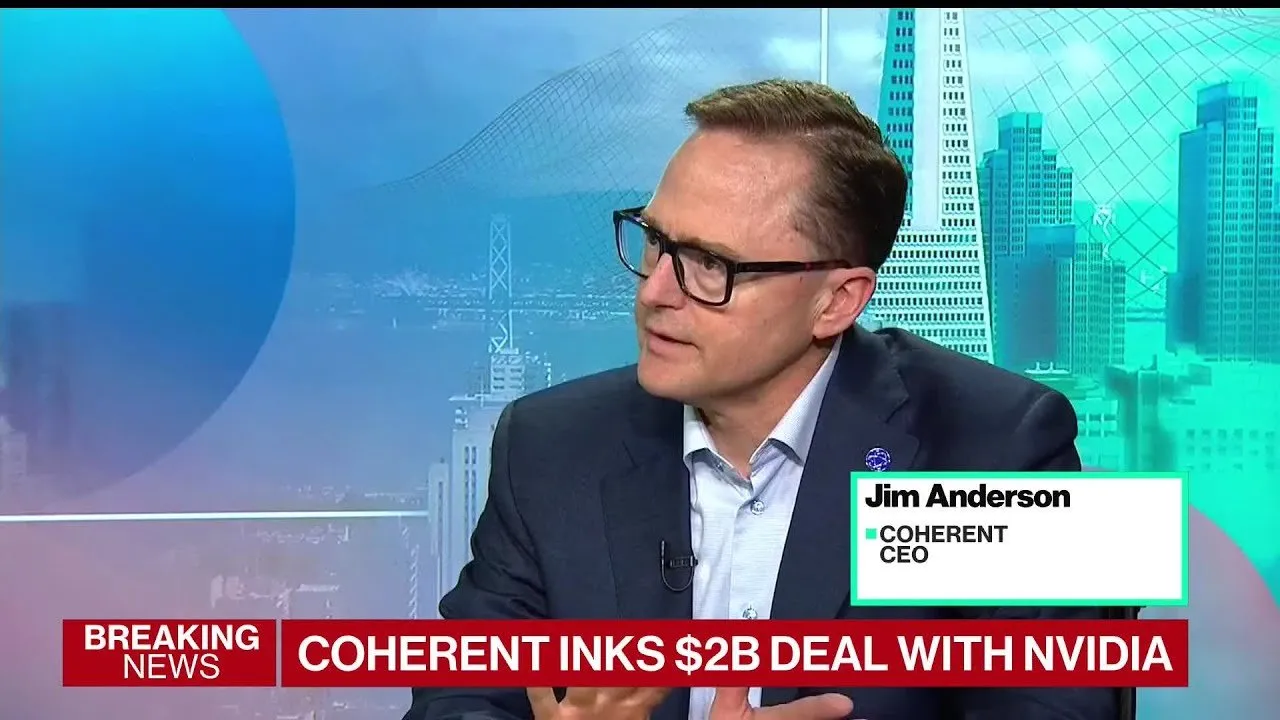Table of Contents
Film critic Critical Drinker reveals how modern Hollywood prioritizes ideology over storytelling, creating the widest gap between critics and audiences in cinema history.
Key Takeaways
- Critics and audience scores on Rotten Tomatoes have never been further apart, with audiences rating top movies 19 points higher than critics in 2022
- Modern female characters are written as perfect from the start, teaching destructive "you're amazing as you are" messages instead of growth through struggle
- Harvey Weinstein scandal created seismic shift where masculine heroes became either absent or subjects of mockery in mainstream films
- Fan-baiting deliberately provokes negative reactions to beloved franchises, then labels critics as bigots to shame people into supporting poor content
- Movie studios operate with three-year production lead times, meaning current theatrical releases reflect 2019-era thinking and decision-making
- The death of DVD sales eliminated the "long tail" revenue that previously allowed studios to take creative risks on mid-budget films
- Hollywood writers now come from privileged backgrounds with no real-life experience, creating characters who mirror their own lack of struggle
- Stoicism in male characters is now considered toxic masculinity, replaced with constant self-deprecating humor and emotional instability
- Studios prioritize Chinese market approval over American patriotism, forcing actors into humiliating apologies for mentioning Taiwan
Timeline Overview
- 00:00–10:16 — Critical Drinker's YouTube origins, Captain Marvel video success, and analysis of the historic divide between professional critics and audience satisfaction scores
- 10:16–22:28 — Discussion of patronizing female character writing in Marvel films, the destructive "believe in yourself" messaging, and loss of mentorship themes in modern storytelling
- 22:28–38:46 — Harvey Weinstein's impact on masculine portrayals, remake culture problems, Matt Damon's DVD sales insight, and the disappearance of mid-budget filmmaking
- 38:46–51:09 — Fan-baiting tactics explanation, market correction predictions, three-year production lag theory, and Warner Brothers' leadership changes under David Zaslav
- 51:09–1:09:09 — House of Dragon redemption potential, specific film failures like Jurassic World Dominion, Henry Cavill's digital mustache removal disaster, and Rick and Morty creator controversy
- 1:09:09–1:14:28 — Future entertainment predictions, genre theory's four-stage cycle from pioneer to parody, and the superhero genre's current decline phase
The Historic Divide Between Critics and Audiences
- Rotten Tomatoes data reveals 2022 marked the biggest gap ever between professional critics and general audiences, with the top 10 movies receiving audience scores averaging 19 points higher than critic ratings, demonstrating fundamental disconnect in entertainment preferences.
- Only two films achieved critic-audience alignment in 2022's top performers: Top Gun Maverick and The Batman, suggesting that traditional storytelling approaches still resonate with general moviegoers while critics have moved toward ideological evaluation criteria.
- The divergence stems from critics being incentivized to maintain studio access through positive reviews, receiving premiere invitations and promotional materials that create financial dependency on maintaining industry relationships rather than honest artistic assessment.
- Professional critics now evaluate films through ideological lenses rather than entertainment value, penalizing movies that don't align with progressive messaging while audiences simply want engaging stories without political lectures embedded throughout the narrative structure.
- Movies like Venom demonstrate the reverse phenomenon where audiences embrace straightforward entertainment that critics dismiss, creating 51-point gaps that reveal how disconnected film journalism has become from actual consumer preferences and satisfaction.
- The realization that professional film critics are "full of crap" has awakened audiences to seek alternative sources for movie recommendations, explaining the rise of independent YouTube critics who aren't beholden to studio access or industry politics.
The Patronizing Portrayal of Modern Female Characters
- Contemporary female protagonists are written as inherently perfect beings who never need to grow or overcome personal limitations, exemplified by Doctor Strange 2 where America Chavez simply needs to "believe in herself" rather than develop actual skills or wisdom through struggle.
- This "you're amazing the way you are" messaging creates destructive real-world expectations for young women who internalize these lessons and expect others to accommodate their perceived awesomeness rather than working to improve themselves through challenges and setbacks.
- The contrast between animated Mulan's underdog journey of hard work and physical training versus live-action Mulan's mystical "Chi" powers perfectly illustrates how modern storytelling has abandoned earned victories in favor of inherent superiority narratives that require no personal sacrifice.
- Marvel's Kevin Feige explicitly stated that Doctor Strange couldn't help Wanda with her powers because "it would look bad if we had a white man coming in to show Wanda how to use her powers," revealing how demographic considerations now override logical storytelling choices.
- Traditional mentorship dynamics where older generations pass wisdom to younger ones have been systematically eliminated, particularly when the mentor figure is male, creating stories where experience and knowledge are treated as worthless compared to youthful intuition.
- The elimination of character growth arcs for female protagonists paradoxically disempowers women by suggesting they're incapable of meaningful development, creating static characters who lack the compelling journey from weakness to strength that defines memorable heroes.
Hollywood's War Against Masculine Heroes
- The Harvey Weinstein scandal created seismic shockwaves that transformed Hollywood's approach to masculinity, making traditional strong male characters either completely absent or subjects of constant mockery, as seen in Thor's transformation from god of thunder to bumbling comic relief.
- Physical comedy targeting men has become acceptable mainstream entertainment, with Disney movies regularly featuring men getting kicked in the groin for laughs, while the reverse scenario involving women would trigger massive social media backlash and industry condemnation.
- Stoicism, historically recognized as a necessary survival skill for dealing with hardship and crisis, is now labeled as toxic masculinity by Hollywood writers who either feel threatened by such strength or envy qualities they've never developed in their privileged lives.
- Modern male characters must constantly engage in self-deprecating humor and emotional instability rather than displaying competence and reliability, creating a caricature that bears no resemblance to how functional men actually behave in real-world situations.
- The "redefining masculinity" movement often involves putting physically weak young men in dresses and calling it progress, while simultaneously mocking traditional masculine virtues like strength, reliability, and emotional self-control that have historically benefited society.
- When movies dare to show competent masculine heroes like Top Gun Maverick's portrayal of an experienced pilot who still possesses superior skills, audiences respond enthusiastically, generating $1.5 billion in revenue that dwarfed Marvel properties focused on diminished male characters.
The Broken Economics of Modern Filmmaking
- The death of DVD sales eliminated the crucial "long tail" revenue stream that previously allowed studios to recoup investments on creative risks, forcing them toward guaranteed blockbuster strategies that prioritize familiar franchises over original storytelling.
- Mid-budget films ranging from $20-30 million have virtually disappeared, creating a binary choice between massive $200 million tentpole movies and tiny independent productions, eliminating the middle ground where innovative storytelling traditionally flourished.
- Studios now operate with three-year production lead times, meaning current theatrical releases reflect decision-making from 2019, explaining why audiences continue seeing ideologically driven content despite clear market rejection of these approaches.
- Warner Brothers' hiring of David Zaslav and firing of Walter Hamada demonstrates how financial losses eventually force business corrections, with Zaslav canceling the completed $100 million Batgirl film rather than damaging the brand further through poor releases.
- The streaming model has inadvertently encouraged piracy by making content immediately available for illegal download, further reducing the revenue streams that previously justified taking creative risks on unproven properties and original stories.
- Risk aversion has created a cycle where studios rely on remakes and reboots of established properties, but these attempts to capture "lightning in a bottle" typically fail because the original creative conditions that made those properties successful cannot be artificially recreated.
Fan-Baiting and Market Manipulation Tactics
- Fan-baiting represents a deliberate strategy where studios announce race or gender swaps to beloved characters, then capture the inevitable negative reactions to label entire fan bases as racist or sexist, shaming consumers into supporting inferior products.
- The Velma reboot exemplifies peak fan-baiting, race-swapping every character except Fred who becomes the sole white male punching bag, while adding inappropriate sexual content to a children's property, creating something so offensive it unites critics from all political perspectives.
- Studios deliberately provoke fan outrage through marketing campaigns, then use the most extreme reactions as proof that any criticism stems from bigotry rather than legitimate concerns about quality, story integrity, or respect for source material.
- The Bros movie director's direct statement that non-viewers are homophobes represents the "mask off" moment where fan-baiting became explicit rather than subtle, revealing the manipulative psychology behind these marketing approaches.
- This shame-based marketing strategy has limited effectiveness because guilt and manipulation cannot sustain long-term consumer behavior, eventually leading to audience exhaustion and complete rejection of franchises that employ these tactics repeatedly.
- Fan-baiting ultimately backfires by destroying the genuine goodwill that original properties built over decades, converting devoted fans into active opponents who warn others away from new installments rather than enthusiastically promoting them.
The Chinese Market's Corrupting Influence
- Hollywood's pursuit of Chinese revenue has forced American studios to eliminate patriotic themes and pro-Western messaging, prioritizing foreign approval over domestic cultural values that built their original audience relationships.
- John Cena's humiliating Mandarin apology for calling Taiwan a country represents the extreme lengths to which American entertainers will debase themselves for access to Chinese markets, sacrificing national dignity for box office revenue.
- Marvel actors now receive training programs teaching them acceptable talking points about China, ensuring they never mention Taiwan, Hong Kong, or other sensitive political topics that might jeopardize film releases in that lucrative market.
- The Black Panther poster controversy, where Chadwick Boseman's face was replaced with the mask to make the character's race less obvious to Chinese audiences, reveals the extent to which studios will compromise their stated progressive values for financial gain.
- Disney's abandonment of Walt Disney's fundamental American patriotism in favor of globalist messaging reflects how profit considerations have overridden the foundational cultural values that originally made these entertainment properties successful and beloved.
- The irony that studios lecture American audiences about social justice while simultaneously kowtowing to authoritarian Chinese censorship demands exposes the hollow nature of their proclaimed moral commitments and reveals pure financial motivation behind their messaging choices.
Conclusion and What This Means for Entertainment
Hollywood's current crisis stems from abandoning fundamental storytelling principles in favor of ideological messaging, creating the widest critic-audience gap in cinema history while systematically destroying beloved franchises through fan-baiting and character assassination. The industry's three-year production lag means audiences will endure more poor content before market corrections take effect, but financial losses are already forcing studio leadership changes that prioritize entertainment value over social engineering. The superhero genre has entered its final parody phase, clearing the path for new storytelling approaches that reconnect with audiences hungry for competent heroes, meaningful character growth, and stories that inspire rather than lecture.
What Audiences Can Do to Drive Change:
- Vote with your wallet by supporting films that prioritize story and character development over ideological messaging
- Seek out independent critics and creators who aren't beholden to studio access and promotional materials
- Embrace older films and international cinema to find compelling storytelling that Hollywood has abandoned
- Support crowdfunded projects and independent filmmakers creating content outside the traditional studio system
- Share positive word-of-mouth for quality entertainment while ignoring fan-baiting provocations designed to generate controversy
- Research a film's production background and writer credentials before investing time and money in new releases
- Demand that streaming services provide better curation and recommendation systems based on actual entertainment value
- Engage with classic literature and original source material to appreciate storytelling excellence and character development
- Support video game developers and other media creators who still prioritize user experience over political messaging
- Recognize that entertainment drought is temporary as market forces eventually correct unsustainable business practices
Hollywood's current trajectory toward ideological messaging over entertainment value has created an unprecedented gap between professional critics and audiences, while systematic attacks on traditional storytelling elements have resulted in patronizing female characters and emasculated male heroes. The industry's broken economics, manipulative fan-baiting tactics, and subservience to Chinese markets have collectively undermined the fundamental purpose of cinema: telling compelling stories that resonate with human experience and provide genuine entertainment value.





